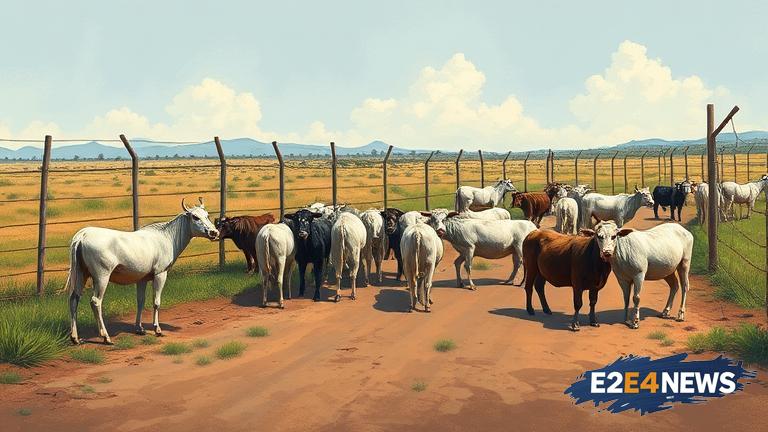The United States has taken the extraordinary step of reclosing its southern border to livestock imports from Mexico. This drastic measure was deemed necessary after the detection of a highly destructive and flesh-eating parasite known as screwworm. The parasite, scientifically referred to as Cochliomyia hominivorax, poses a significant threat to animal health, causing severe wounds and potentially leading to the death of infected livestock. The U.S. Department of Agriculture (USDA) has been at the forefront of this crisis, working diligently to contain the outbreak and prevent its spread within the country. The USDA has implemented an emergency plan to eradicate the parasite, which includes the use of sterile insects to disrupt the screwworm’s reproductive cycle. This method has been successfully employed in the past to control similar outbreaks. The current situation has drawn parallels to a major screwworm infestation in the 1950s, which took years to bring under control. The closure of the border to livestock imports has caused concern among farmers and ranchers, who rely on cross-border trade for their livelihoods. The USDA has assured stakeholders that the closure is a temporary but necessary measure to safeguard the nation’s livestock industry. Meanwhile, Mexican authorities have been collaborating closely with their U.S. counterparts to address the issue and restore trade as soon as possible. The screwworm outbreak has also raised awareness about the importance of stringent animal health regulations and the need for international cooperation in combating transboundary animal diseases. The economic implications of the border closure are being closely monitored, with potential impacts on both the U.S. and Mexican livestock sectors. The situation underscores the vulnerability of global food systems to biological threats and the critical role of surveillance and rapid response in mitigating such risks. As the USDA continues its efforts to eradicate the screwworm, the focus remains on protecting animal health and ensuring the stability of the agricultural industry.
